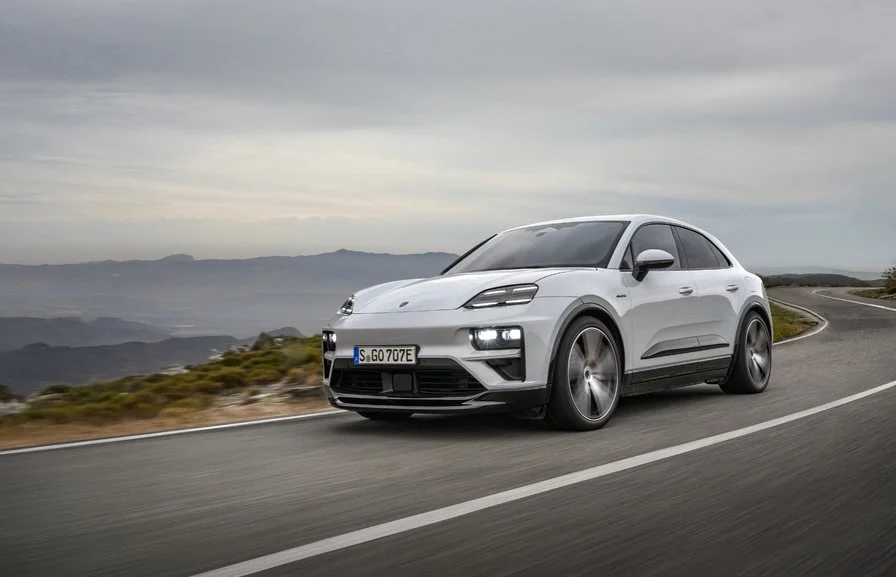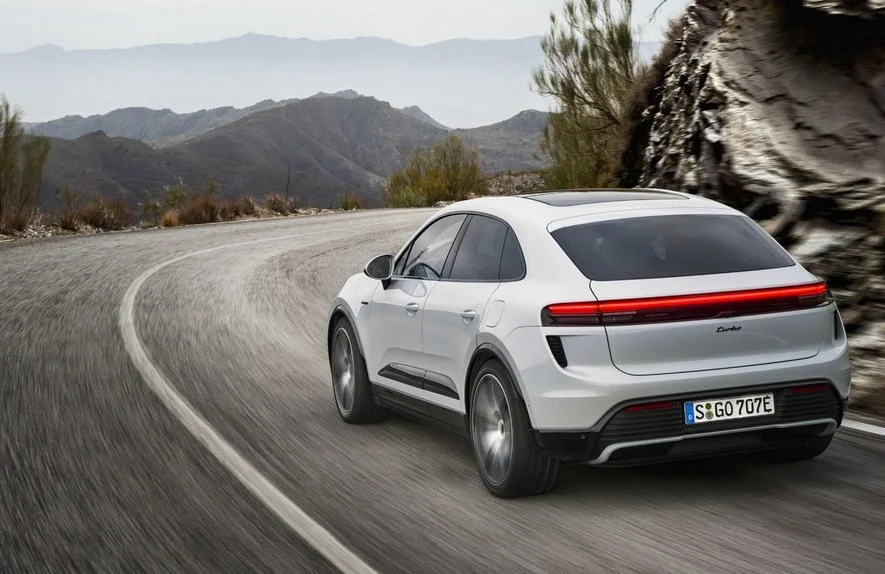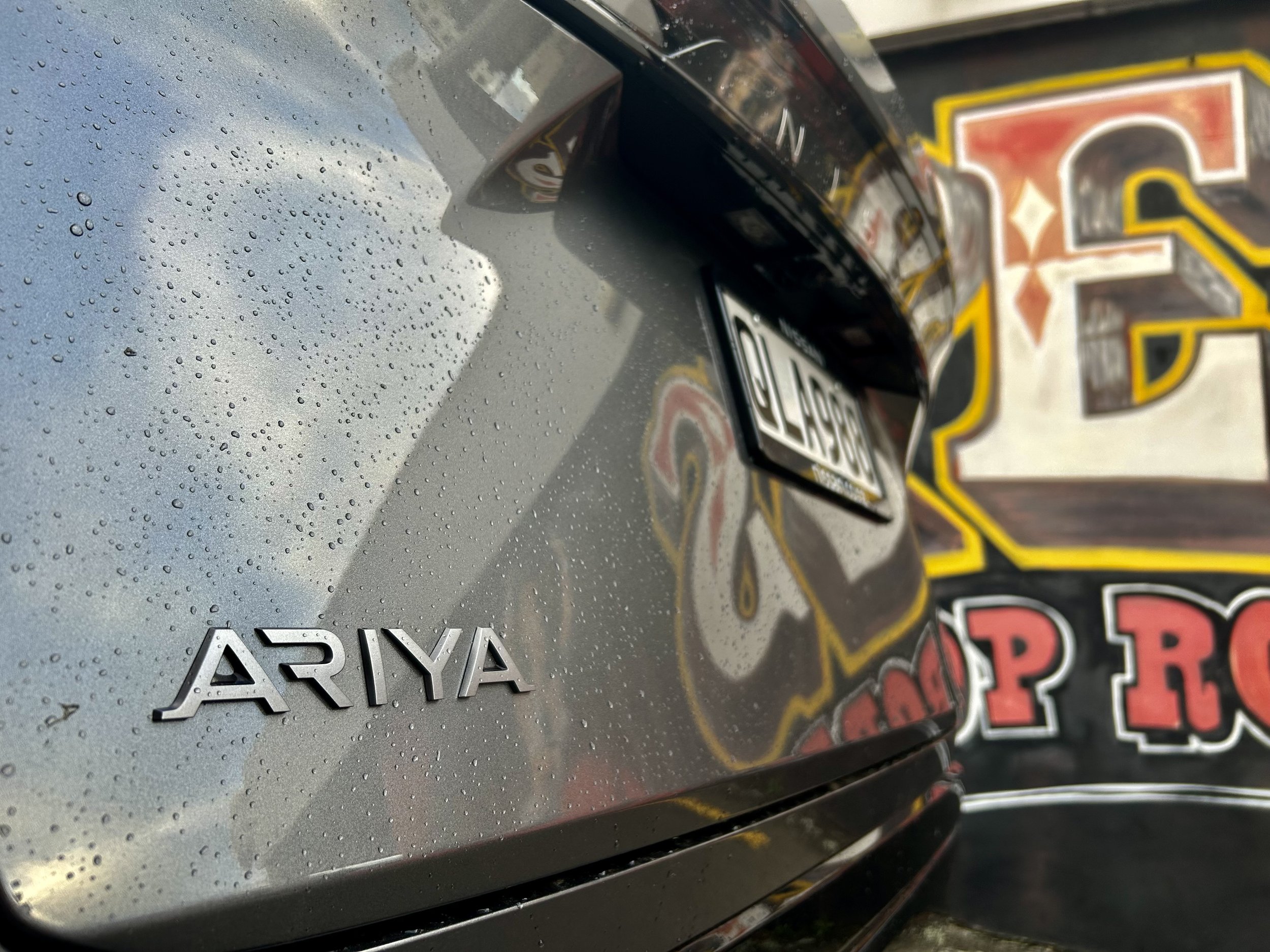Electric Macan a battery blitz
/Massive step-off and stomp - but go easy and it’ll hit big range numbers, too.
PLENTY of fizz, of course, but surprisingly not necessarily entirely at expense of range - light foot the next Porsche Macan and you might see up to 613km before need to replenish.
Note the ‘r’ word. ‘Refuel’ is inappropriate because the impending model is only coming as an electric car, and it’ll be a clean break from petrol. Thought that the current model, already 10 years into production, would continue alongside for a year or two has been dismissed.
The new car is a battery blaster, of course. The badge demands nothing less.
Power and torque from the twin motor drivetrain? In the Macan 4, you get 300kW and 650Nm. In the Turbo it’s a considerable rise … to 470kW and 1130Nm.
That means these electric SUVs are quick: the Macan 4 runs 0-100kmh in 5.1 seconds, while the Turbo trims that time down to a supercar-like 3.3 seconds. Both comfortably exceed 200kmh.
They're almost as fast to recharge, too. This is the first product here on an all-new electric vehicle chassis for Porsche, called the Premium Platform Electric (PPE).
This allows for 800-volt electrical architecture, as already seen on Porsche’s first EV, the Taycan, so that the maximum charging speed on the new Macan models is 270kW on DC.
This means the 95kWh lithium-ion battery pack (that's the usable energy capacity) can go from 10-80 percent state of charge in around 21 minutes at its fastest rate.
Sticker prices are also big numbers: $166,500 for Macan 4; $223,000 for the Turbo reminds that electric is cheaper to input and run with, but the hardware is more expensive. The current four petrol models span from $124,400 for the base Macan to $172,900 for a GTS. Exact arrival timing has also to be shared by Porsche NZ.
The drivetrain is clever. It uses permanently excited motors and the battery can split into two 400-volt units, if the public charger is only a 400-volt item, which then means that even without a high-voltage booster, the two halves of the battery can charge at up to 135kW DC.
AC charging at up to 11kW is also possible and the motors can recuperate up to 240kW of energy while driving.
All these features allow the car to go up to 591km to a single charge as the Macan Turbo and a notable 613km as the Macan 4. Dawdle and 765-784km to a single charge could arrive.
Styling takes obvious cues from the existing Taycan; that’s also the case with the cockpit design and instrumentation. In respect to comparison with the current Macan, this one is slightly bigger. Wheelbase has grown by 86mm to 2893mm overall.
That will benefit interior room, but so far Porsche has only explained that boot capacity is up, to 540 litres from 458 litres previously. Further storage is provided by another 84-litre cargo area under the bonnet.
Porsche Active Aerodynamics effort will make the new Macan what the company describes as “one of the most streamlined SUVs on the market”, with a drag coefficient of just 0.25.
A 12.6-inch curved-screen instrument cluster without an upper cowl is major focus point. The 10.9-inch infotainment screen will be familiar to Taycan types. A 10.9-inch Passenger Display is optional.
Technology beyond this includes a head-up display with augmented reality technology, which helps with navigation directions and more, while the software powering the Porsche Communication Management (PCM) system is based on Android Automotive OS. It includes voice-assistant control triggered by a 'Hey Porsche' command, as well as the possibility of installing third-party apps.
Even though there are many digital user interfaces up front, but Porsche hasn't dispensed with physical switchgear entirely for the air vents and climate controls.
Like any self-respecting EV, much of the new Macan's construction includes the use of ecological materials, with selected parts of the interior physically demonstrating this environmental outlook.
A low-set seating position should help the electric Macan feel like a 'true' Porsche from behind the wheel, but plenty of electronics are there to also sharpen the driving experience.
The electronically controlled Porsche Traction Management (ePTM) all-wheel-drive system is claimed to operate five times faster than a conventional four-wheel-drive set-up, and it can detect slip from any given wheel and respond within 10 milliseconds.
The Turbo, as the more driver-focused model, has Porsche Torque Vectoring Plus (PTV Plus) on its rear axles, which is an electronically controlled differential lock for engaging handling characteristics.
As standard, the Macan 4 has steel springs and fixed-rate dampers, with Porsche Active Suspension Management (PASM) variable shock absorbers optionally available, as well as the choice of uprating to full air suspension.
The Macan Turbo gains air springs with PASM as standard, and on any car with it fitted, these dampers now have two-valve technology - an upgrade seen recently in the larger Cayenne SUV.
Another first for the Macan cars will be optional rear-axle steering, which has a maximum steering angle of five degrees, and which can reduce the Porsche SUV's turning circle to 11.1 metres.
Can it tow? Yes. It’s capable of hauling up to 2000kg of braked trailer.




















